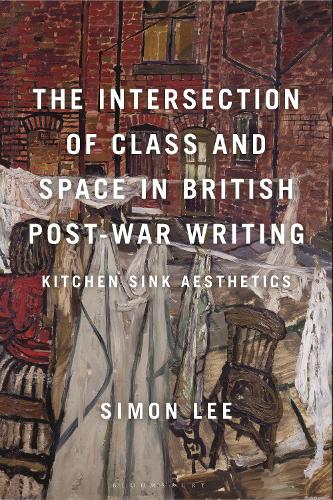
The Intersection of Class and Space in British Postwar Writing: Kitchen Sink Aesthetics
(Hardback)
Available Formats
Publishing Details
The Intersection of Class and Space in British Postwar Writing: Kitchen Sink Aesthetics
By (Author) Simon Lee
Bloomsbury Publishing PLC
Bloomsbury Academic
26th January 2023
United Kingdom
Classifications
Tertiary Education
Non Fiction
Modern and contemporary plays / drama
Social classes
Urban communities / city life
820.900912
Physical Properties
Hardback
240
Width 156mm, Height 234mm
Description
Centering on the British kitchen sink realism movement of the late 1950s and early 1960s, specifically its documentation of the built environments influence on class consciousness, this book highlights the settings of a variety of novels, plays, and films, turning to archival research to offer new ways of thinking about how spatial representation in cultural production sustains or intervenes in the process of social stratification. As a movement that used gritty, documentary-style depictions of space to highlight the complexities of working-class life, the periods texts chronicled shifts in the social and topographic landscape while advancing new articulations of citizenship in response to the failures of post-war reconstruction. By exploring the impact of space on class, this book addresses the contention that critical discourse has overlooked the way the built environment informs class identity.
Reviews
Simon Lee sets out an important and compelling case for how the kitchen sink realism of the 1950s and 1960s moved beyond 1930s proletarian representations to establish new forms of classed identity, which remain the benchmark for working-class writing today. * Nick Hubble, Professor of Modern and Contemporary English, Brunel University, UK *
Author Bio
Simon Lee is Assistant Professor of English at Texas State University, USA where he researches and teaches Post-WWII British literature, social class and labour history. He has published on writers such as Colin MacInnes, Shelagh Delaney, John Osborne and Pat Barker, and on topics such as immigration, nationalism and cultural identity.
